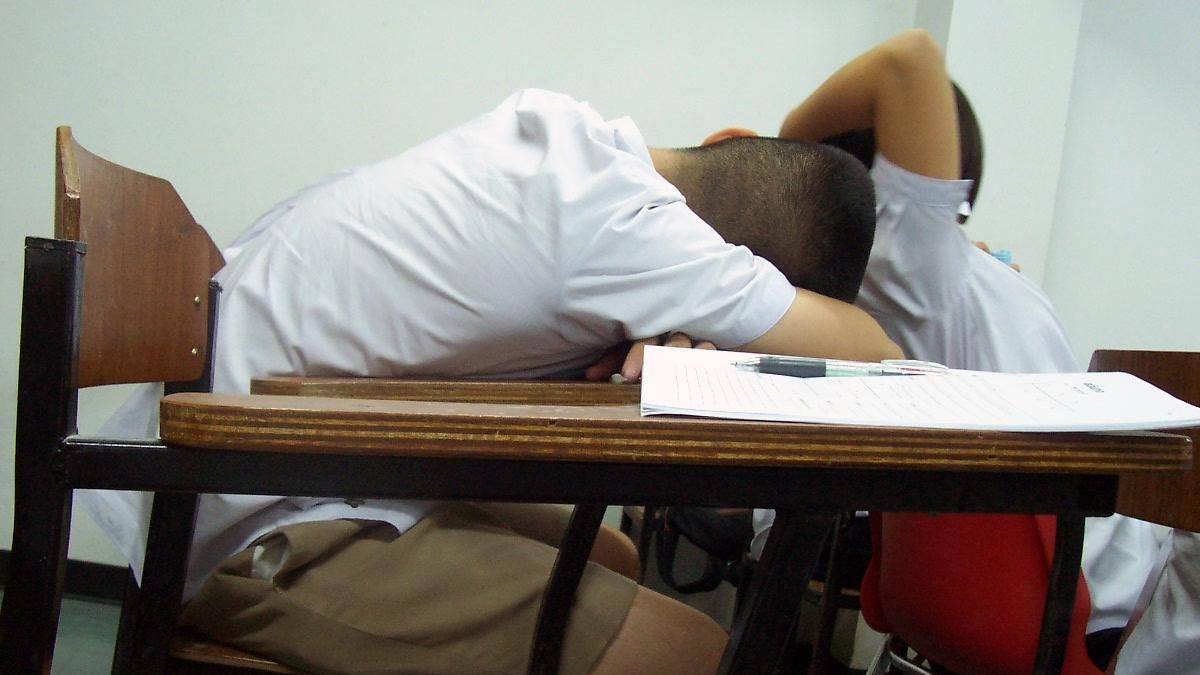A student’s guide to coping with jet lag
 Supplied
SuppliedStarting a new term after Christmas break can be difficult on its own, but trying to stay focused and eager to learn while jet lagged is like putting on a pair of new running shoes, determined to finish a race while drunk. Every international student at the U of A who’s flown home and back to school is familiar with this burden. When travelling across multiple time zones your internal clock is disrupted, resulting in fatigue, lack of awareness, and confusion. It can also weaken learning ability, memory capacity, and lead to increased of stress. As if being back in school isn’t punishment enough.
So how do you cope? Do you buy a fourth coffee to stay awake, or just go to sleep? Since returning to school from my travels, I have done some research into ways of dealing with jetlag. Putting them to the test, I wondered if it’s possible for a jet-lagged student to stay in the zone in a new timezone. Here’s what I found out.
Tip 1: Control your light exposure
Seeking out the right amount of daylight, or avoiding it, is recommended as one of the quickest way to beat jet lag. But in between classes, when you’re constantly running from Tory to CCIS, there’s little time to track the hours you’re spending in the daylight. Even if you try, you’ll probably still end up staring up at the sun, confused as to what time it actually is versus what time your body thinks it is. As well, if you are flying east-to-west, you should to avoid morning light and seek afternoon light. While this is great in theory, the Edmonton winter is not so accommodating, as it gets dark at four p.m. Good luck with that.
Effectiveness: High
Difficulty: High (+ extra difficulty for being in Edmonton in the winter)
Tip 2: Melatonin
Some advise that melatonin, a natural chemical that makes you sleepy, works as a jetlag “cure.” If you have travelled east to west, you will wake up in the middle of the night, since it’s likely mid-afternoon back home. The natural sleep properties of melatonin can be used to put you back to sleep. Unfortunately, between the confusion of first week classes, bookstore lineups, and the exhaustion of trekking to Shoppers to buy it, I think I will pass (out) on this option.
Effectiveness: High
Difficulty: Moderate – High (SubMart/ Bookstore, help international students out and stock this helpful tablet!)
Tip 3: Avoid caffeine
If you have excellent will power and coffee isn’t your “thing,” this is an easy step to follow. However, if you’re coffee dependent like me, (and I know most students out there are), you simply can’t go a day without it. So this tip may be a hopeless for you. Plus, coffee on the plane is free, making life even harder! My advice: drink a cup of water with your coffee — at least you’re semi-following the tip.
Effectiveness: Moderate
Difficulty: Low – Very hard
Tip 4: Avoid alcohol
I flew into Prague, and couldn’t pass the opportunity of delicious beer for 30 crowns (roughly $2, not kidding). If you’re a university student and can pass on alcohol when/ after flying home, all I can say is good for you.
Effectiveness: Moderate
Difficulty: Impossible
The truth is, there is no step-by-step way to beat jet lag. As an international, or travelling student, part of returning to school is accepting that you’re going to be tired, exhausted, and disoriented to the point that you’ll cancel yoga, forget homework, and zone out while watching Netflix. My advice is to drink lots of water, go to bed later (to prevent waking up in the middle of the night), take naps whenever and wherever you can (SUB couches work well), and try to get a good night sleep. If all fails, pray your profs are merciful and that the weekend comes quickly.




